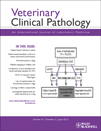
VETERINARY CLINICAL PATHOLOGY
Scope & Guideline
Transforming research into practice for animal health.
Introduction
Aims and Scopes
- Diagnostic Cytology:
Emphasizes the use of cytological techniques for diagnosing various conditions in animals, including tumors, infections, and inflammatory diseases. - Hematology:
Focuses on the study of blood and blood disorders in various animal species, encompassing diagnostic methods, reference intervals, and the effects of diseases on hematologic parameters. - Clinical Chemistry:
Covers biochemical analysis of bodily fluids to understand disease processes, including the development of new diagnostic tests and evaluation of existing assays. - Comparative Pathology:
Encourages research on disease mechanisms across different species, facilitating a better understanding of veterinary and comparative pathology. - Quality Control and Standardization:
Addresses the importance of quality management in laboratory practices, including the validation of diagnostic methods and the establishment of reference intervals. - Emerging Diseases and Pathogens:
Investigates the impact of new and re-emerging diseases in veterinary medicine, including zoonotic implications and advancements in diagnostic technology.
Trending and Emerging
- Point-of-Care Testing:
An increasing focus on point-of-care diagnostic tools that allow for rapid assessment of patient conditions, reflecting a shift towards more immediate and accessible veterinary care. - Biomarker Research:
Growing interest in identifying and validating new biomarkers for various diseases, enhancing diagnostic accuracy and treatment monitoring in veterinary patients. - Hematology Advances:
Recent publications show a trend towards advanced hematology techniques, including the evaluation of specific blood parameters and the application of new analytical technologies. - Inflammation and Immune Response:
There is a rising emphasis on studying acute phase proteins and other markers of inflammation, which are crucial for understanding disease processes and patient management. - Telemedicine and Remote Diagnostics:
Emerging themes focus on the role of telemedicine in veterinary diagnostics and how remote monitoring tools can aid in clinical decision-making.
Declining or Waning
- Traditional Diagnostic Methods:
There is a noticeable decrease in publications focused solely on traditional diagnostic methods, as newer technologies and methodologies gain traction and interest. - Exotic Animal Pathology:
Research specifically centered on exotic animal species is becoming less frequent, possibly due to a shift in focus towards companion animal medicine and mainstream veterinary practices. - Basic Research on Non-Veterinary Species:
Studies related to basic research on species not commonly kept as pets or farm animals are waning, as the journal leans more towards applied clinical pathology relevant to commonly treated species.
Similar Journals
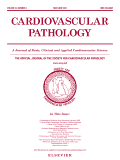
CARDIOVASCULAR PATHOLOGY
Bridging the gap between pathology and cardiovascular care.CARDIOVASCULAR PATHOLOGY, published by Elsevier Science Inc, is a distinguished journal dedicated to the dissemination of high-quality research in the fields of cardiology, pathology, and cardiovascular medicine. With an ISSN of 1054-8807 and an E-ISSN of 1879-1336, this journal has established itself as a vital resource for researchers, clinicians, and students alike. It is positioned in the Q2 quartile for both cardiology and pathology, indicating its significant impact and relevance in these disciplines. The journal offers a platform for innovative studies, reviews, and clinical insights, aiming to enhance our understanding of cardiovascular conditions and their pathological underpinnings. With an H-index that showcases its scholarly influence, CARDIOVASCULAR PATHOLOGY is committed to advancing the field through rigorous peer review and open dialogue among professionals. The journal is accessible through institutional subscriptions, making it an essential reference point for ongoing research through its convergence of knowledge from 1992 through 2024.
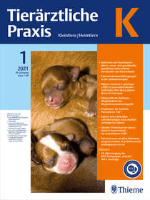
TIERAERZTLICHE PRAXIS AUSGABE KLEINTIERE HEIMTIERE
Transforming pet care through dedicated scholarship.TIERAERZTLICHE PRAXIS AUSGABE KLEINTIERE HEIMTIERE, published by GEORG THIEME VERLAG KG, is a leading journal in the field of veterinary medicine, particularly focusing on small companion animals. With an ISSN of 1434-1239 and E-ISSN 2567-5842, this esteemed publication has been a vital resource for clinicians, researchers, and students since its inception in 1997. The journal operates within a categorized rank of Q3 in Small Animals for the year 2023, placing it among the notable resources in its niche. Although it offers no open access options, the journal compiles comprehensive research, case studies, and clinical guidelines that are indispensable for advancing veterinary knowledge and practices. With a dedicated focus on the dynamics of small animal care and the latest developments in treatment methodologies, TIERAERZTLICHE PRAXIS AUSGABE KLEINTIERE HEIMTIERE serves as an essential platform for disseminating innovative veterinary science that significantly contributes to the well-being of our beloved pets.

ISRAEL JOURNAL OF VETERINARY MEDICINE
Advancing Veterinary Knowledge for a Healthier TomorrowThe Israel Journal of Veterinary Medicine, published by the Israel Veterinary Medical Association, serves as a vital resource for researchers, professionals, and students in the fields of veterinary medicine and animal science. With a commitment to advancing knowledge across diverse veterinary disciplines, this journal plays a crucial role in disseminating significant findings and innovations that influence both local and global veterinary practices. Although it currently holds a Q4 ranking in both the Animal Science and Zoology and Veterinary (miscellaneous) categories, the journal's open access policy, enabling free availability of articles, aspires to increase its accessibility and engagement among the academic community. The journal's convergence of research from 2007 to 2024 showcases its dedication to continuously contributing to the evolving landscape of veterinary science.
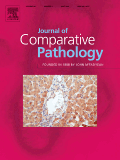
JOURNAL OF COMPARATIVE PATHOLOGY
Connecting Research to Clinical Practice in PathologyJOURNAL OF COMPARATIVE PATHOLOGY, published by Elsevier Science Ltd, stands as a significant publication within the fields of pathology and forensic medicine, as well as veterinary studies. With an ISSN of 0021-9975 and an E-ISSN of 1532-3129, this journal has been disseminating critical research since 1950, contributing to the advancement of knowledge through its focus on comparative pathology. The journal's reputable standing is underscored by its Q3 classification in Pathology and Forensic Medicine and Q2 in Veterinary (miscellaneous) for 2023, reflecting its vital role in shaping contemporary discourse in these domains. The Scopus ranks further solidify its presence, placing it at the 51st percentile in general veterinary sciences and the 32nd percentile in pathology—a testament to the quality and relevance of the contributions it publishes. Although it operates under a subscription model, the journal remains accessible to researchers and practitioners who aim to deepen their understanding of pathological phenomena across species, enhance diagnostic accuracy, and improve clinical practices. With a steadfast commitment to rigorous peer review and a global readership, the JOURNAL OF COMPARATIVE PATHOLOGY is an essential resource for those engaged in research and professional practice, fostering collaborations and innovations that bridge complementary areas of study.
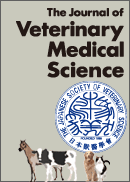
JOURNAL OF VETERINARY MEDICAL SCIENCE
Exploring Innovations in Veterinary Medical Science.JOURNAL OF VETERINARY MEDICAL SCIENCE, published by the Japan Society of Veterinary Science, serves as a critical platform for advancing the field of veterinary medicine. With an ISSN of 0916-7250 and E-ISSN of 1347-7439, this journal covers a broad spectrum of topics relevant to veterinary science, publishing original research, reviews, and case studies that contribute to the scientific knowledge base and clinical practice. Recognized for its quality, the journal has achieved a Q2 ranking in the Veterinary (miscellaneous) category for 2023, placing it within the top 35% of journals in its field as per Scopus rankings. With a convergence of years spanning from 1991 to 2024, it reflects a rich history of scholarly contributions. Researchers, professionals, and students engaged in veterinary science will find valuable insights and advancements within its pages, significantly supporting their work and enhancing veterinary practices globally. The journal is located at the University of Tokyo, and while it does not currently offer open access, it remains an essential resource in veterinary medical literature.
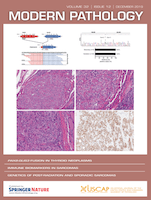
MODERN PATHOLOGY
Unveiling Breakthroughs in Modern PathologyMODERN PATHOLOGY is a premier journal in the field of pathology and forensic medicine, published by Elsevier Science Inc. With an impressive impact factor that places it in the top 1st quartile (Q1) for 2023, and a remarkable rank of 5 out of 208 in its category according to Scopus, it serves as a vital resource for researchers, professionals, and students alike. Established in 1988, the journal focuses on the latest advancements in diagnostic pathology, molecular pathology, and related fields, providing a platform for innovative research that drives the discipline forward. Although it does not operate under an open access model, readers can expect rigorously peer-reviewed publications that contribute to the growing body of knowledge in pathology. With a continuous commitment to excellence and relevance, MODERN PATHOLOGY remains a fundamental avenue for disseminating high-quality scientific research globally, facilitating the growth and development of its field.
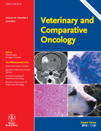
Veterinary and Comparative Oncology
Innovating treatments, enhancing lives: the future of veterinary oncology.Veterinary and Comparative Oncology is a leading academic journal published by WILEY, providing a vital platform for the dissemination of groundbreaking research in the field of veterinary oncology. With an impressive impact factor and ranked as Q1 in the Veterinary (Miscellaneous) category for 2023, the journal is recognized for its quality and influence, placing it in the top 10% of its field. Covering a wide array of topics, from the pathogenesis of tumors in animals to innovative treatment strategies, it aims to enhance the understanding of cancer biology and therapy in veterinary medicine. The journal has an E-ISSN of 1476-5829, with its scope expanding from 2007 to 2024, reflecting an ongoing commitment to the advancement of veterinary science. Located in the United Kingdom, its global reach facilitates the exchange of knowledge among researchers, professionals, and students. For those interested in significant and impactful studies, Veterinary and Comparative Oncology remains an essential resource in the ever-evolving landscape of veterinary medicine.

Exploratory Animal and Medical Research
Fostering innovation in animal health and ecology.Exploratory Animal and Medical Research is a vital platform for progressive research in the fields of veterinary medicine, ecology, and public health, published by the West Bengal Veterinary Association. Since its inception in 2011 as an Open Access journal, it has enabled the dissemination of critical knowledge without barriers, thereby fostering innovation and collaboration among researchers globally. With an ISSN of 2277-470X and an E-ISSN of 2319-247X, the journal has gained significant traction, as reflected in its Scopus ranking, where it stands at Rank #110/194 for Veterinary General Veterinary and Rank #242/398 in Medicine (miscellaneous), highlighting its relevance in the scientific community. The journal covers a wide scope that includes veterinary medicine, health, toxicology, and environmental studies, having earned category quartiles in 2023 that range from Q3 to Q4 across multiple disciplines. Based in India, it serves as an essential conduit for the latest research findings, making a considerable impact on both local and global scales.
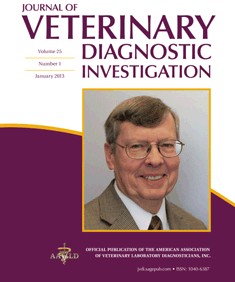
JOURNAL OF VETERINARY DIAGNOSTIC INVESTIGATION
Championing excellence in veterinary diagnostics since 1989.The JOURNAL OF VETERINARY DIAGNOSTIC INVESTIGATION, published by SAGE PUBLICATIONS INC, stands as a pivotal resource in the field of veterinary medicine, focusing on the latest advancements in diagnostic methodologies and their application in animal health. With an impressive impact factor and ranked in the Q1 category of Veterinary (miscellaneous) for 2023, this journal ensures the dissemination of high-quality research that is critical for veterinarians, researchers, and students alike. Established in 1989 and set to continue through 2024, it encompasses a broad spectrum of topics, vital for professionals committed to enhancing veterinary diagnostics. The journal's rigorous peer-review process guarantees that only the most innovative and thorough research contributions reach its audience, fostering an environment of academic excellence and knowledge transfer in the veterinary diagnostic field.

ACTA VETERINARIA BRNO
Connecting Researchers to Enhance Global Animal HealthACTA VETERINARIA BRNO is a distinguished journal published by the Veterinární a farmaceutická univerzita Brno in the Czech Republic, focusing on innovative and scholarly research in the field of veterinary sciences. With an established history dating back to 1974, this journal has evolved to maintain its relevance in contemporary veterinary research, as evidenced by its inclusion in Scopus and a respectable Q3 rank in the miscellaneous veterinary category. Despite operating under traditional access models, ACTA VETERINARIA BRNO remains a vital resource for researchers and practitioners seeking to advance their understanding of veterinary medicine and related disciplines. With its commitment to publishing high-quality, peer-reviewed articles, the journal serves as a crucial platform for disseminating significant findings, thereby contributing to the enhancement of animal health and welfare globally.